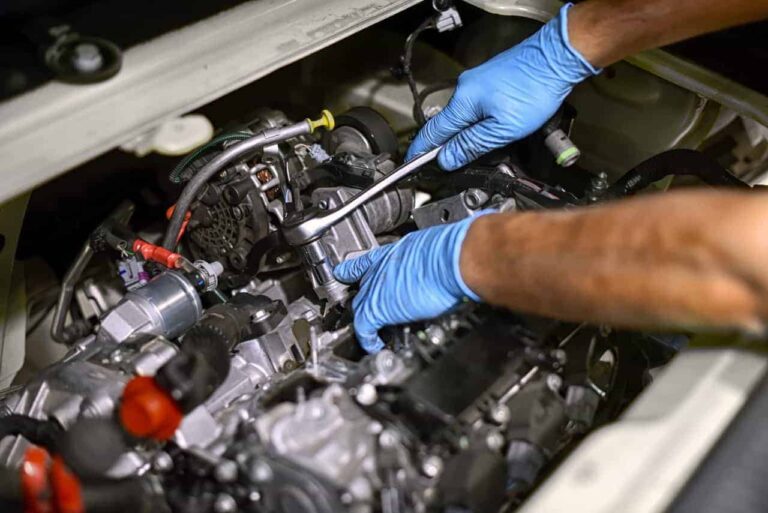Car owners around the world approach the maintenance of their vehicles differently. There are certain practices that are universally adopted, like changing motor oil. However, there are also those important things you should be doing frequently to make sure your car is properly running. One of the crucial parts of your car is the transmission. If there is a problem with it, the car cannot de driven and the repairs are almost always hefty. Therefore, transmission should be taken care of constantly.
In an automatic transmission car the gear change is made automatically, hence there is no clutch or gear stick. When the transmission is put into Drive (D) the car will automatically select the correct gear according to the load on the engine and the road speed. Usually, an automatic will change to a higher gear as the road speed increase, and to a lower gear as it falls. Visit the siteNpcautomotive.comas they helps people find the right transmission for their cars.
Now, different vehicles require different kinds of attention. Newer vehicles do not require much tinkering for years, while cars that have seen their fair share of miles do need special attention. Therefore, depending on the type of vehicle you have, as well as its overall age and the history of potential transmission issues, you have to adapt. Remember, repairs are often costly.
Most of the smaller issues can be dealt with easily on your own, but sometimes it is impossible to avoid a specialist having to service your vehicle. In this article, we will give you all the tips you need to properly maintain your car’s transmission.
1. Transmission Fluid Check
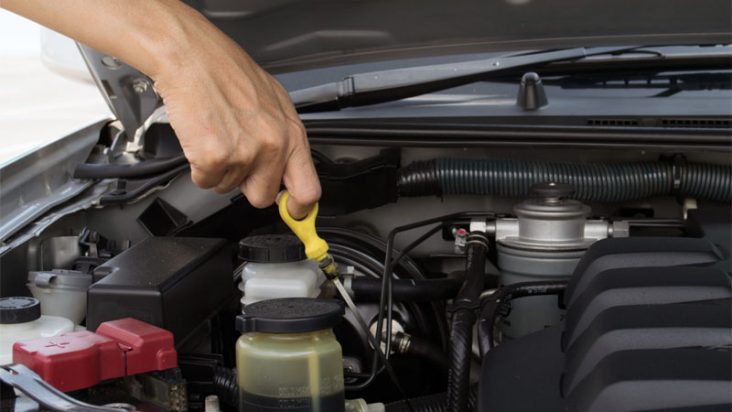
The most important thing you can regularly check is transmission fluid. Most of the car models, lighter trucks, and SUVs allow easy checking of transmission fluid, almost as easy as checking the oil. Here is how to do it. While your engine is idle, pull out the dipstick and wipe it off. Then, insert it again and wait for a little bit, and pull it out again. This will give you an accurate reading of your transmission fluid situation. If it is low, there might be a leak involved. Transmission fluid is a bright red color and clear, and its smell should be sweet. If it is none of those things or if one of them is different, a specialist may be in order. Murky, dark, or rotting-fish-smelling fluid is a clear sign of trouble worth checking out.
2. Right Kind of Transmission Fluid
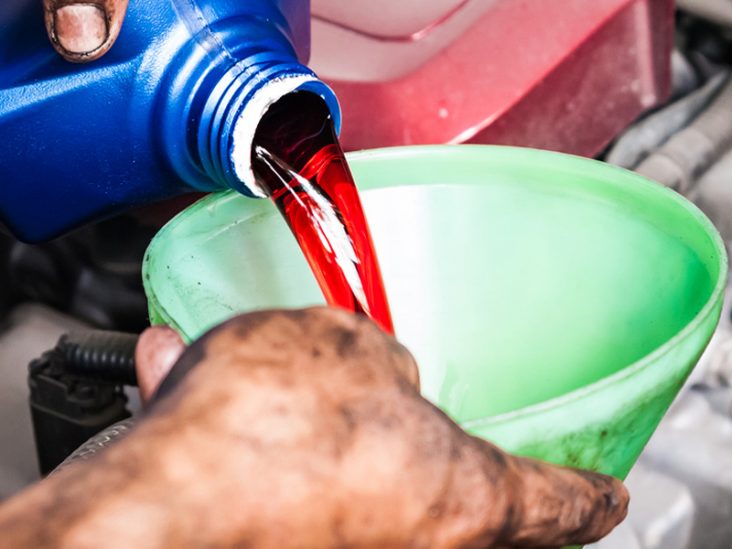
You have to be using the right kind of transmission fluid for your vehicle. To know which one you need exactly, consult the owner’s manual you received with the car, or ask your mechanic. If you are still unsure after the manual or a talk with the mechanic, remember that the Internet is your friend and you can always seek other people’s experiences and reviews.
3. Engine Cooling
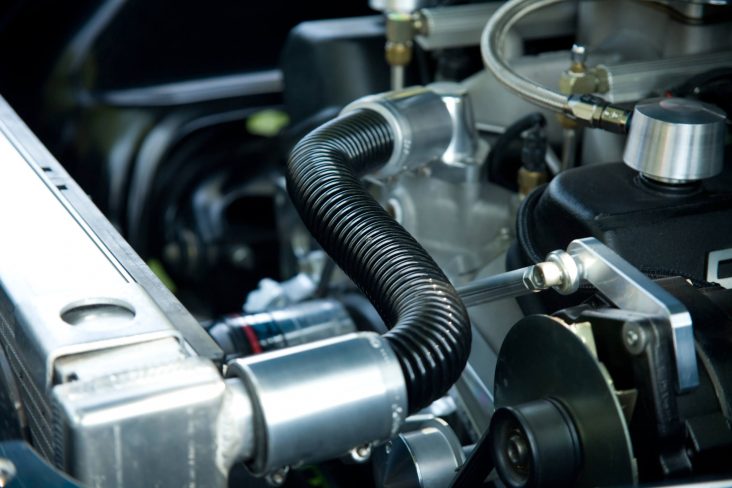
Next up on the list is the cooling system of your engine. As the name suggests, the system helps the engine from overheating as it runs the car. Since this is a very important role, it should be regularly serviced and maintained. Most car owners have no idea that a good and properly working cooling system also makes sure that the pumping of transmission fluid through the gearbox is also cool. If your engine does not overheat, there is a good chance you will never experience the need for a transmission repair. Always try to make sure your cooling system works at optimal levels and take care of your engine.
4. Transmission Flush
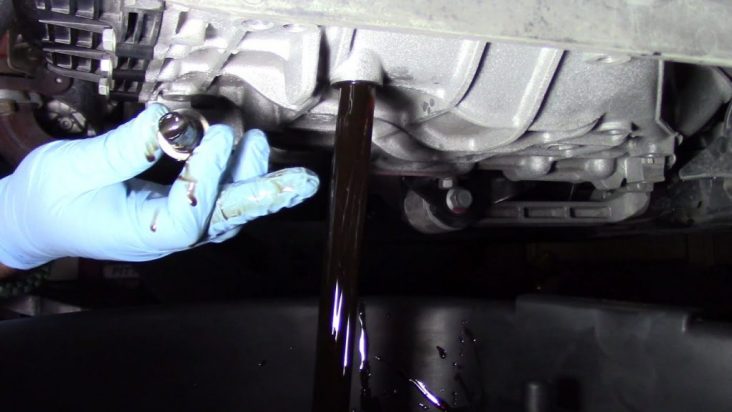
Continuing the trends of regular maintenance, your car also needs occasional transmission flushes. Flushing of transmission fluid is basically changing the fluid, and you will be doing the car a favor if you leave it to the professionals. Follow the guidelines in your car’s owner’s manual to see how often you need to do it. Generally, it should be done at least once a year, more if you have an older vehicle. Furthermore, the operating temperature of the car and how much you drive it directly influence how long a new batch of transmission fluid is going to last. If you want to learn more about transmission fluids in general as well as about flushing and how much it costs, head on over to this website.
5. Gear Changing Rules
This does not apply for manual gearboxes of course. With automatic cars, never change gears while the car is moving or you can damage the transmission greatly. For example, always bring your car to a safe and complete stop before you put it into “drive” to “reverse”, and the other way around. If you fail to do so, it will damage your transmission every time you do it and after a while, you will have a huge car problem on your hands.
6. Warming Up the Car
Newer drivers are somewhat used to doing this because they tend to care more about everything, including the car’s well-being. Still, every driver should allow their vehicle some time to warm up before driving it. Let your car warm up before you drive. Usually, people are in such a rush that they back out of the driveway as soon as the car turns on. What everyone should do is allow a few minutes for the car to warm up before starting the drive, especially during the cold winter mornings.
7. Spare Tire Driving

If you have had the misfortunate of a flat tire and are currently driving on a spare, make sure you are not doing it for an extended period of time. All four car tires should be of the same size and pressure, so if you are driving mismatched tires for too long, transmission, and the whole car, is surely going to suffer. Some of the problems apart from the avoidable transmission strain include wheel alignment issues.
8. Transmission Filter
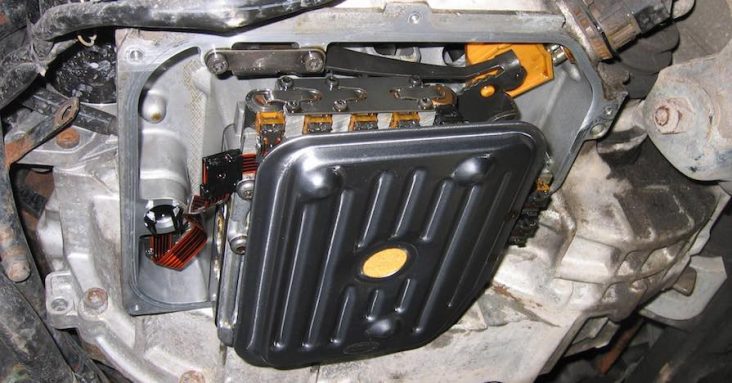
Automatic transmissions on cars might have filters that have to be changed every once in a while. It completely depends on the brand and the model if the car has a transmission filter. Age is also a large factor here, as most of the newer vehicles lack a transmission filter. If your car has one, it is best to have it changed whenever you have your transmission flushed.
9. Towing
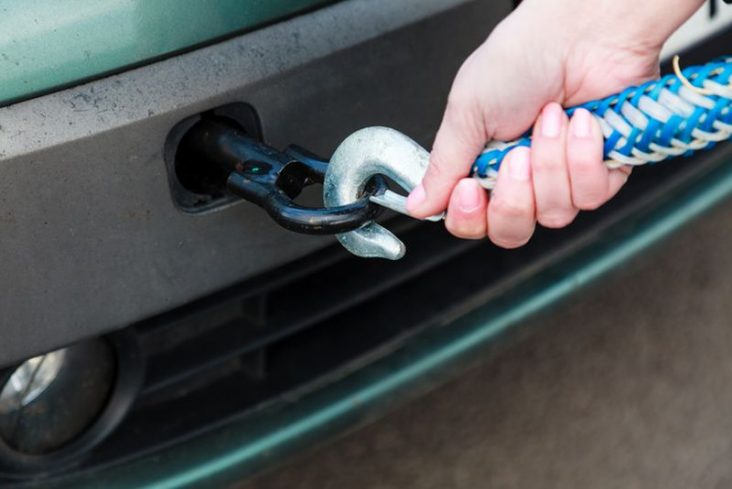
Towing other vehicles is a great effort for any car, especially regular cars that were never made to pull so much weight. If you constantly use your car to tow heavy things like trailers and other vehicles, especially in hot and humid weather conditions when the engine is already under much more stress. The added weight and all the extra revs can cause transmission fluid to oxidize and even burn, causing damage to your car’s transmission.
10. Annual Transmission Inspection
To summarize, you should have your car’s transmission inspected at least once a year, just to make sure that all of the aforementioned things are in check. Once you develop this practice, your car will be thankful to you for providing it with a certified transmission repair specialist who is going to conduct full diagnostic transmission checks.

